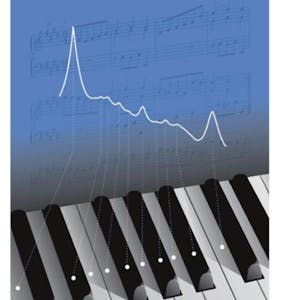Music as Biology: What We Like to Hear and Why
About this Course
The course will explore the tone combinations that humans consider consonant or dissonant, the scales we use, and the emotions music elicits, all of which provide a rich set of data for exploring music and auditory aesthetics in a biological framework. Analyses of speech and musical databases are consistent with the idea that the chromatic scale (the set of tones used by humans to create music), consonance and dissonance, worldwide preferences for a few dozen scales from the billions that are possible, and the emotions elicited by music in different cultures all stem from the relative similarity of musical tonalities and the characteristics of voiced (tonal) speech. Like the phenomenology of visual perception, these aspects of auditory perception appear to have arisen from the need to contend with sensory stimuli that are inherently unable to specify their physical sources, leading to the evolution of a common strategy to deal with this fundamental challenge.Created by: Duke University

Related Online Courses
We will begin this guided project by understanding what Hubspot is. We will explore the contacts, conversation, marketing, sales & service sections of Hubspot. Then we will integrate Hubspot with... more
This is a self-paced lab that takes place in the Google Cloud console. This lab will provide an introductory, hands-on experience with Generative AI on Google Cloud.Created by: Google Cloud more
In this course, you will learn how to work with the Azure command line and web portal to create, manage, and control cloud-based resources. You will look at all three approaches to deploying cloud... more
The second course of the Addressing Racial Health Inequity in Healthcare specialization you will journey through a survey of critical drivers of racial inequities in healthcare. These critical... more
Understanding organizational adoption of Google Cloud. This series of courses starts with the basics of digital transformation and Google Cloud and then builds on that knowledge to understand the... more








